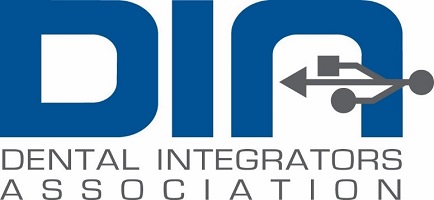What You Need To Know About Cybersecurity In 2021
The world of cybersecurity advances and changes along with the evolution of technology, which is a good thing, because the need for cybersecurity is greater than ever as companies rely more and more on computers and the internet to conduct business. In 2020, the move towards almost total reliance on computers and the internet grew exponentially. That growth has also generated new opportunities for nefarious groups, or individuals, to take advantage of businesses who are vulnerable to cyberattacks. Things like having an unsecured computer network, coupled with IT support that isn’t as robust as it should be, create openings that hackers take advantage of.

Taking a look back, we can see that the need for cybersecurity came to prominence in the 1970s. Many credit Robert Thomas, a researcher at BBN, with creating the first computer worm. Its purpose was to see if the program was able to move between DEC PDP-10 mainframe computers. While this project was not intended to be harmful in any way, it showed that a computer could be compromised and thus began the early stages of what we now know today as cybersecurity.
By the 1980s, cybersecurity had made its way into the mainstream as viruses were becoming more prevalent and being used maliciously. Fast forward 40 years and we have seen cyberattacks spread worldwide and create problems that reach far beyond crippling a computer network.
In the early 2000s, cyberattacks began to target credit card systems, which led to the theft of information from millions of credit cards. In 2013, Yahoo experienced cyberattacks that compromised the accounts of over 3 billion users. More recently in 2018, Gmail was the victim of a cyberattack that allowed hackers to gain access to the accounts of several U.S. activists, journalists, and government officials through an elaborate phishing scheme. With user information becoming more valuable and cyberattacks becoming more sophisticated as time goes on, the need for cybersecurity is higher than ever.
So, what does this all mean moving forward?
Cybersecurity will continue to evolve alongside cyberattacks. Many businesses’ needs have changed as working from home has become more commonplace and things like social media, video conferencing and cloud solutions become more prevalent.
There are some basic things that businesses should know about and start implementing moving forward:
- Start practicing basic cyber “hygiene” – There are some things you can do to begin to protect your data and personal information. Create strong passwords that aren’t easy to guess and enact multi-factor authentication. Back up key data and have redundancies in case of an emergency. Explore the need for virtual private networks and whether or not they are beneficial for your business. Make sure that software applications are the latest versions available and any anti-virus software is up to do date.
- Safeguard any devices connected to the internet – With so many new gadgets that rely on the internet to make our lives easier, these devices can create a vulnerability for cyberattacks. Things like tablets, desktop computers, laptops, and even networked storage drives and webcams can open the door for hackers to gain access. Ensure the Wi-Fi that your computers and devices connect to is secure and regularly change the passwords for both Wi-Fi and the devices themselves to help naturally beef up security.
- Be aware of attacks through social media and other avenues of communication – Now more than ever, there is a wealth of personal information available online about people, places, and businesses. Things like reviews on products, websites that are commonly visited, and even likes or dislikes on social media leave a digital footprint that hackers can use to profile a person or business and learn users’ habits. This can then create opportunities for hackers to use things like phishing to get what they need without you even knowing it. Be sure to check that direct messages, e-mails and texts are coming from trusted people you know. Make sure to be wary of attachments or files from suspicious sources.
The above tips are a great start to do your part when it comes to cybersecurity. The next step should be contacting Compass Network Group, so our decades of experience in IT support and cybersecurity can be put to use to protect your business. We offer a host of services that can be tailored to your business needs and have a specialty in working with dental office computer networks and other highly regulated industries.
Contact us today to schedule a discovery session where we can discuss what your vulnerabilities may be and how we can help protect your business from cyberattacks and offer services to help in a variety of different ways.




